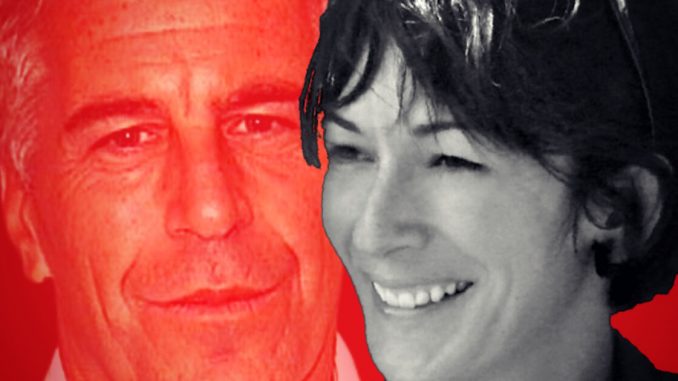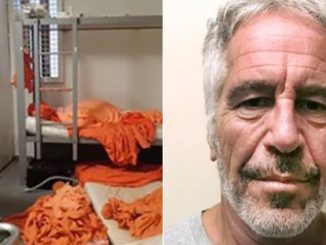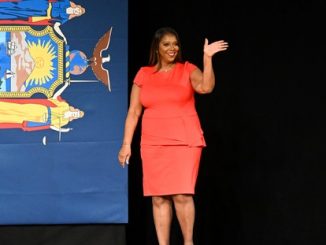
Maxwell opposes the unsealing and release of Grand Jury transcripts from her and Jeffrey Epstein’s prosecutions.
| Published August 6, 2025
Ghislaine Maxwell, the convicted accomplice of Jeffrey Epstein, asked a judge on Tuesday to reject a US Justice Department request to unseal the grand jury transcripts in her criminal case and that of the late notorious sex offender.
💼 Frontlines of a Legal Battle
Convicted in 2021 on charges of facilitating Jeffrey Epstein’s trafficking of minors, Ghislaine Maxwell is fighting a renewed legal dispute: the U.S. Justice Department is seeking to unseal grand jury transcripts from both her case and Epstein’s, while Maxwell’s legal team is steadfastly opposing it.
⚖️ Maxwell’s Legal Case Against Disclosure
In court filings, Maxwell’s attorneys argue she has never seen the sealed transcripts, as grand jury proceedings—conducted behind closed doors—prohibit disclosure even to the defendant.
They describe the transcripts as “hearsay‑laden” and warn that releasing them could cause “irreparable reputational harm”, especially since she has not had the chance to cross-examine the witnesses. That, they argue, would compromise her pending appeal to the U.S. Supreme Court.
Their key line: “Jeffrey Epstein is dead. Ghislaine Maxwell is not.” She maintains her right to due process and privacy while her legal options remain alive.
🏛️ DOJ’s Push for Transparency
The Justice Department, under instruction from former President Donald Trump and amid criticism over sealed “Epstein files,” has asked federal judges to authorize partial public release of grand jury testimony. DOJ officials stress that only two law enforcement officers (an FBI agent and an NYPD detective) testified in the grand jury process, and that much of what was said is already reflected in Maxwell’s public trial and victim statements.
🧠 Wider Legal & Political Terrain
Maxwell’s appeal hinges in part on a 2007 non‑prosecution agreement between Epstein and federal authorities—a legal argument that might be undermined if sealed testimony includes speculative or unverified statements.
Meanwhile, victim advocates and attorneys for survivors have weighed in: some see value in full transparency to expose Epstein-era networks, while others emphasize protecting victims’ identities and mental health risks from re-exposure.
🔎 Why This Matters
-
Grand Jury Secrecy at Stake: Resolving this dispute could reshape the longstanding legal norm of protecting grand jury confidentiality—especially when defendants are still living and pursuing appeals.
-
Public vs. Private Interest: The case highlights the clash between transparency in high-profile criminal cases and the privacy and procedural rights of a convicted individual.
-
Political Motives and Fallout: Trump mobilized the effort under pressure from his base—yet critics suggest it’s a symbolic move that offers little new substance while opening political vulnerabilities.
-
Potential Floodgates: If unsealed, even minor details could spark new scrutiny of names mentioned, fueling fresh investigations or reputational crises for powerful figures beyond Epstein.
🔮 What Comes Next
-
Federal Judges overseeing the Maxwell and Epstein matters (including Judge Paul Engelmayer) must decide whether to lift the seal, balancing public interest with legal procedure.
-
Maxwell’s Supreme Court Appeal remains active, with a ruling expected in late September on the broader non-prosecution agreement issue.
-
Congressional Oversight continues: The House Oversight Committee has subpoenaed the Justice Department and public figures—including Bill and Hilla
 Implications:
Implications:
Here are the implications of Ghislaine Maxwell opposing the unsealing of grand jury documents in the Jeffrey Epstein case, broken down into key categories:
🔒 1. Legal Implications
⚖️ For Maxwell:
-
Stronger Appeal Argument: Maxwell is positioning this as a due process issue, potentially strengthening her appeal if the documents are released and negatively affect her reputation or case.
-
Potential Retrial Tactic: By framing the unsealing as unfair, her team may try to leverage it as a reason for a retrial or sentence reduction.
⚖️ For the Justice System:
-
Precedent on Grand Jury Secrecy: If courts decide to unseal grand jury material over an objection, it could weaken the traditional protections around secret grand jury proceedings in high-profile cases.
-
Reassessment of Victim Protection Rules: The tension between transparency and privacy may push legal reform around how to balance victims’ rights with public interest in notorious cases.
🕵️ 2. Political Implications
🧨 For Public Officials:
-
Renewed Scrutiny on Powerful Figures: If transcripts are unsealed and contain names or allude to relationships, politicians, celebrities, or business leaders—especially the Clintons and Prince Andrew—may face a second wave of accountability.
-
Risk for Trump and His Administration: While President Trump is pushing the release, any mention of his past association with Epstein could backfire—especially if it contradicts public claims or depositions.
🏛️ For Congress:
-
Increased Pressure for Oversight: The subpoena blitz and calls for full transparency could intensify investigations—not just of Epstein and Maxwell—but also into how institutions protected them.
-
Weaponization of the Case: There’s a risk that the case becomes a partisan tool, where each political side uses it to attack rivals rather than pursue justice.
🌐 3. Social and Cultural Implications
📢 For Victims and Advocates:
-
Mixed Feelings About Justice: Some survivors want everything public to help others come forward. Others fear re-traumatization, or having their identities exposed again.
-
Revival of #MeToo Momentum: The potential release may reinvigorate public demands for justice in elite sex trafficking cases and hold the ultra-wealthy accountable.
🔎 For Public Discourse:
-
Trust in Institutions: The public may view resistance to unsealing as more evidence of an elite cover-up, feeding conspiracy theories and distrust toward the justice system, media, and government.
-
Media Frenzy and Speculation: If released, the documents could dominate headlines for weeks, drawing massive attention, but also risking misinterpretation or sensationalism.
💼 4. International Implications
-
Pressure on Foreign Royalty: Figures like Prince Andrew may face renewed media and legal pressure in the UK or other countries if new names surface.
-
Global Legal Precedent: This case could influence how other countries handle sealed documents in sex trafficking cases involving global networks.
 Overall Takeaway:
Overall Takeaway:
SOURCES: THE GATEWAY PUNDIT – JUST IN: Ghislaine Maxwell Opposes Unsealing of Her and Jeffrey Epstein’s Grand Jury Transcripts
FRANCE 24 – Epstein accomplice Maxwell opposes unsealing grand jury transcripts
BLOOMBERG – Ghislaine Maxwell Opposes Release of Epstein Case Documents





Be the first to comment